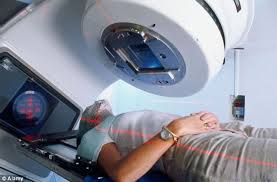Cancer patients relief from inflammation

Feeding on plant foods gives Cancer patients relief from inflammation
Cancer patients relief from inflammation: Good healthy nutrition
Eating more of plant food. There is more than you can ever imagine in fresh food products from plants. Did you know that plant foods are the only foods containing anti-inflammatory phytonutrients? Besides that, they are very rich in the antioxidants and fiber your body needs to stay cancer-free. Remember that fiber can also lower levels of C-reactive protein (CRP). CRP is a protein in the blood that signals inflammation. According to the American Institute for Cancer Research, they recommend that when eating, people should consider filling at least two-thirds of their plate with plant foods. Therefore take this guideline seriously and make one half of your plate non-starchy vegetables and/or fruits of all colors. And never forget to make one-quarter of your plate whole grains or starchy vegetables, like potatoes, corn and peas. These has been established to be one of the greatest cancer patients relief from inflammation.
Cancer patients relief from inflammation: Processed foods
Choosing whole, fresh foods and doing your own prep maximizes nutrients and phytonutrients. These nutrients keep us healthy in many ways, while reducing inflammation. Processed foods are lower in nutrients and higher in refined sugars, flours and fats. They’re also usually loaded with artificial ingredients that can increase CRP levels. It is therefore important that you skip highly processed foods, like fast food, packaged and instant foods and steer clear of processed meats, like deli-meats, bacon, sausage, hotdogs and pepperoni. Final avoid taking sodas and sports drinks.
Cancer patients relief from inflammation: Balance fatty acids
Omega-3 fatty acids can help protect your body from chronic inflammation. On the other hand, omega-6 fatty acids increase inflammation.
Many people across the globe are trying to include more omega-3 fatty acids in their diet. But, they’re still eating too much omega-6 fatty acids. The key therefore is balance, so you’ll take in more omega-3 and less omega-6. Also eat foods high in omega-3 fatty acids, such as salmon, tuna, halibut, flaxseeds, chia seeds, walnuts, pecans and avocado. Use oils high in omega-3, such as olive and canola and limit oils high in omega-6, such as corn, sunflower, peanut and soybean. Ensure that when buying your stock get the information of the ingredients on packaged foods. Limit foods made with refined vegetable oils high in omega-6. You’ll find these oils in most snack foods, cookies, crackers and sweets.
Cancer patients relief from inflammation: Limit red meat
Eating too much red meat, like pork, beef, lamb, deer and buffalo, can increase your cancer risks. Try to limit red meat to 18 oz. or less each week to keep your cancer risks low. Doctor Akoury suggests replacing red meat with these high protein foods to help reduce chronic inflammation. You can also choose animal proteins, such as skinless chicken, turkey and fish while replacing animal proteins with plant proteins, such as beans and lentils, at some meals. And better still; choose meat, milk, cheese and eggs from pasture-raised and hormone-free animals.
Cancer patients relief from inflammation: Fermented foods
Fermented foods such as yogurt, sauerkraut and miso contain probiotics that help reduce inflammation. To get the most health perks, eat at least one small serving of a fermented food each day. Finally at the home of solutions (AWAREmed Health and Wellness Resource Center) there is much more you can get from the most experienced professionals there. For any cancer about cancer and effects of inflammation, you can schedule for an appointment with doctor Dalal Akoury today for further deliberations.
Cancer patients relief from inflammation: Good healthy nutrition
http://www.awaremednetwork.com/





